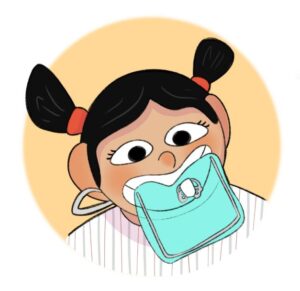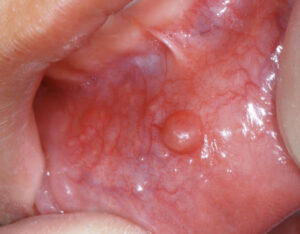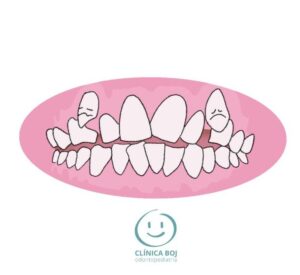Learn how to deal with oral problems during confinement
Oral problems during confinement should be dealt with. The dentist should only be consulted in case of emergency.
For this reason, here are a series of oral problems that may arise and how to deal with them:
1- My tooth hurts:
a) Take the usual analgesic that you usually take for other ailments.
b) Avoid the painful area. Eat soft, warm and lightly seasoned food. Try to eat on the other side as well.
c) Do not stretch completely on the couch or bed, keep your head in a higher position than the rest of the body. Use 2 or 3 pillows to sleep.
2- I have a toothache, and I cannot control the pain with the measures in the previous section:
IT IS AN EMERGENCY. Contact the dentist.
3- I have developed a phlegmon (lump) on my gum:
THIS IS AN EMERGENCY. Contact the dentist.
4- My face or part of my face has swollen:
IT IS AN EMERGENCY, especially if accompanied by a high fever (>38.5ºC). Contact the dentist.
5- I have a bleeding wound in my mouth:
a) Squeeze the wound area with gauze for 30 minutes. It is important to keep the gauze tight without moving it for 30 minutes, without moving it or removing it to check if the wound has stopped bleeding.
b) After 30 minutes, change the gauze for a new one and tighten it again for another 30 minutes.
c) In about 2 hours the bleeding should have stopped.
6- I have braces:
If the appliance causes pain or soft tissue injuries, IT IS AN EMERGENCY. Contact your dentist.
Oral problems during confinement that should be considered an emergency:
Durante el confinamiento, sólo se debe acudir al dentista en caso de emergencia. Por este motivo, a continuación te dejamos una serie de problemas bucodentales que pueden surgir y cómo debemos actuar ante estos.
1- Me duele un diente:
- Tome el analgésico habitual que sueles tomar por otras dolencias.
- Evita la zona dolorosa. Come alimentos blandos, templados y poco condimentados. Intenta también comer por el otro lado.
- No te estires del todo en el sofá o en la cama, mentén la cabeza en posición más elevada que el resto del cuerpo. Utiliza 2 ó 3 almohadas para dormir.
2- Me duele un diente, y el dolor no lo puedo controlar con las medidas del apartado anterior:
- ES UNA URGENCIA. Contacta con el dentista.
3- Me ha salido un flemón (bulto) en la encía:
- ES UNA URGENCIA. Contacta con el dentista.
4- Se me ha hinchado la cara, o una parte de la cara:
- ES UNA URGENCIA, sobre todo si va acompañado de fiebre alta (>38,5ºC). Contacta con el dentista.
5- Me sangra una herida de la boca:
- Aprieta la zona de la herida con una gasa durante 30 minutos. Es importante que mantengas apretada la gasa sin moverla durante los 30 minutos seguidos, sin moverla ni retirarla para comprobar si la herida ha dejado de sangrar.
- Al cabo de 30 minutos, cambia la gasa por una nueva y vuelve a apretar 30 minutos más.
- En unas 2 horas el sangrado debería haber parado.
6- Soy portador de ortodoncia:
- Si la aparatología produce dolor o heridas en tejidos blandos, ES UNA URGENCIA. Contacta con el dentista.
References:








